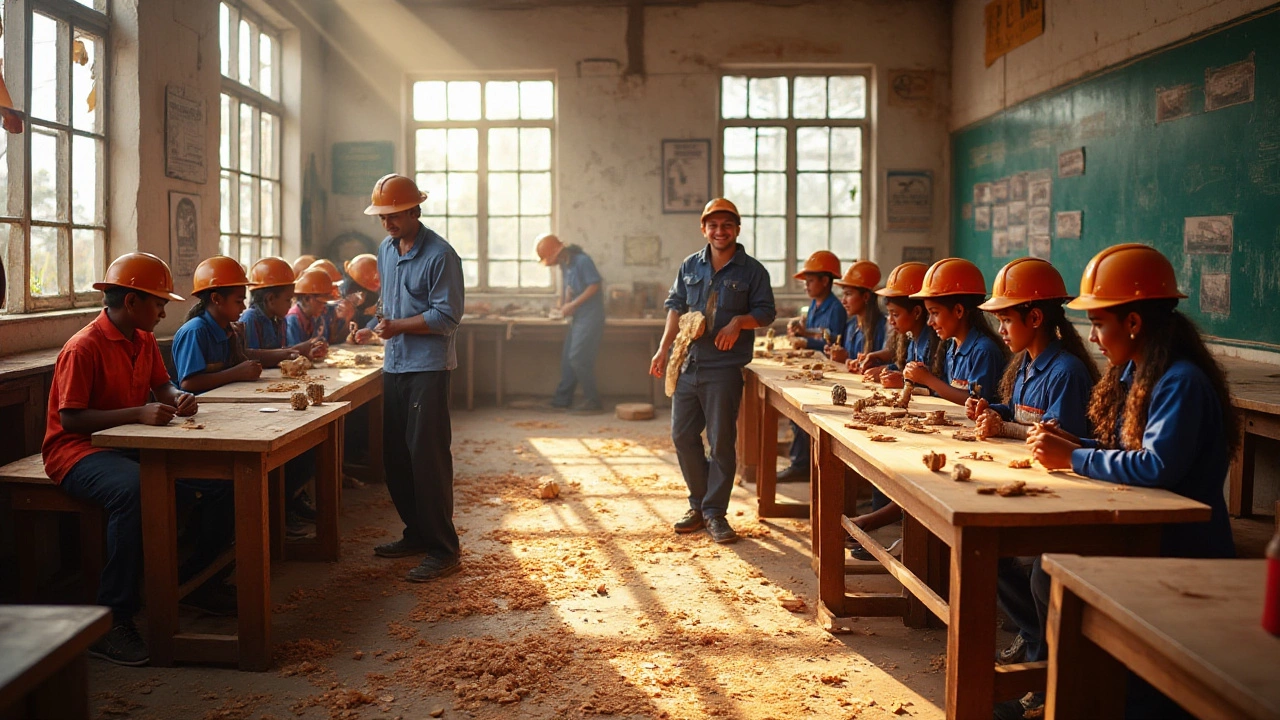Vocational Education: Real‑World Skills for a Strong Career
India's job market is hungry for hands‑on talent, and vocational education offers a fast route to those in‑demand skills. Instead of spending years on theory alone, students can learn by doing, earn a certification, and step into a job that pays well. If you’re wondering whether a vocational path fits your goals, this guide breaks down the basics, the best courses, and how to turn training into a lasting career.
What is vocational education?
Vocational education focuses on practical training for specific occupations. It blends classroom lessons with workshops, labs, or on‑the‑job apprenticeships. The curriculum is designed by industry experts, so the skills you pick up match what employers need today. From electrician work to graphic design, each program aims to make you job‑ready the moment you graduate.
Popular vocational courses and where to find them
Here are the top tracks that are booming across India:
1. Industrial Training Institutes (ITIs): ITIs provide short‑term diplomas in trades like welding, plumbing, CNC machining, and automotive servicing. They are spread across states, often run by the government, and include a mandatory apprenticeship component.
2. Diploma in Nursing and Allied Health: Health‑care jobs are growing fast. A two‑year diploma can land you roles in hospitals, diagnostic labs, or community health centers. Many colleges partner with hospitals for hands‑on practice.
3. Computer and IT Skills: Courses in hardware maintenance, networking, and basic programming (e.g., Python, Java) are offered by private institutes and NGOs. They often culminate in certifications like CompTIA A+ or Cisco CCNA, which boost employability.
4. Hospitality and Tourism: Hotels, restaurants, and travel agencies look for staff trained in front‑desk operations, food safety, and event management. Institutes such as IHM (Institute of Hotel Management) provide a blend of classroom learning and internships.
5. Creative Trades: Graphic design, photography, and video editing courses are now common in community centers and online platforms. Many programs include a portfolio project that you can show to potential clients.
When choosing a course, check three things: the institute’s placement record, the industry relevance of the syllabus, and whether the program includes a real‑world internship. A good placement record often means the institute has solid ties with local businesses.
After you finish, the next step is to showcase your skills. Build a simple resume highlighting certifications, projects, and any on‑the‑job training you completed. If you have a portfolio—say, a set of design samples or a list of repaired machines—attach it. Employers in the vocational sector love tangible proof.
Many states also run skill‑development schemes like the PMKVY (Pradhan Mantri Kaushal Vikas Yojana). These schemes offer free or subsidized training, plus a stamp‑paper certificate recognized by industry bodies. Signing up can save you money and improve your job prospects.
Finally, keep learning. Vocational fields evolve quickly, especially in tech and renewable energy. Short refresher courses, online webinars, or even on‑the‑job upskilling can keep you ahead of the curve.
In short, vocational education gives you a clear path from classroom to career. Pick a trade that matches your interests, enroll in a reputable program, and use the hands‑on experience to land a job that pays and grows with you.
Understanding Vocational Education in Schools
Vocational education in schools focuses on practical skill development, preparing students for specific trades or careers. Unlike traditional academic paths, these programs integrate hands-on experience with classroom learning, offering students a pathway to employability in fields like carpentry, culinary arts, or technology. With the growing demand for skilled tradespeople, vocational courses are becoming increasingly important in bridging the gap between education and the workforce. By providing real-world applications and job-ready skills, vocational education plays a vital role in modern schooling.
read more